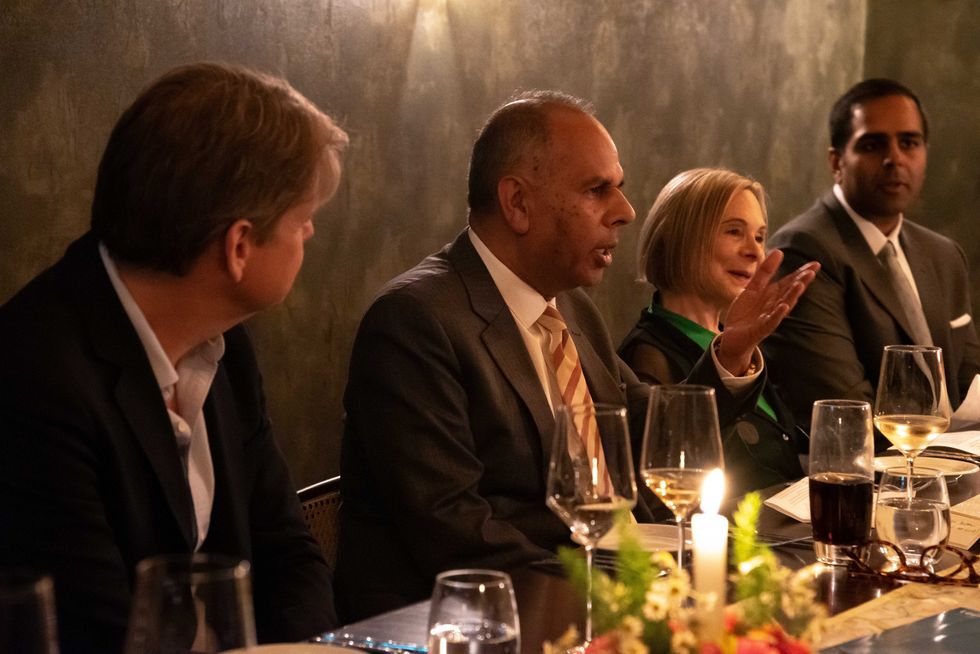According to some health experts, many people don’t even know they have a fatty liver. However, non-alcoholic fatty liver disease (NAFLD) is reported to be growing worldwide, at extraordinary speed and it is the most common liver disease.
New findings reveal that the condition is a leading cause of liver-related illness and death around the globe. It is also reported to affect nearly a third of the population to date.
Though the disease sometimes causes no problems, health experts say that doesn’t mean it should be ignored, as the build-up of fat can damage the liver cells. It can also cause inflammation.
According to the Express, recent reports suggest that one sign after waking up in the morning could provide a hint of the disease.
Are you feeling fatigued as soon as you wake up? It could be an indication of liver disease. But it should be kept in mind that exhaustion can also be caused by other underlying diseases.
According to the Canadian Journal of Gastroenterology and Hepatology, fatigue is a complex symptom encompassing a range of complaints including exhaustion, lethargy, and malaise.
So, what exactly is non-alcoholic fatty liver disease?
It is the term for a range of conditions caused by the build-up of fat in the liver. According to information on Health Plus, a healthy liver contains small amounts of fat, however, a fat build-up in the liver amounting to more than anything over 5 percent of the weight of the liver can lead to fatty liver disease.
A number of symptoms are associated with NAFLD but one of the most prevalent complications is fatigue. The other symptoms include nausea, yellowing of the skin, and abdominal pain.
“Fatigue is a significant problem in NAFLD, is similar in degree to that in primary biliary cirrhosis patients, and is associated with impairment in physical function. Fatigue in NAFLD appears to be unrelated to either severity of underlying liver disease or insulin resistance, but is associated with significant daytime somnolence,” explained researchers in the journal, Gut in 2008.
It is believed that the symptoms of the disease can impact the quality of life of those who suffer from it. Therefore, it can lead to lower work productivity and decreased academic performance as well. It is also known to cause issues that regulate the mood and emotions, thereby leading to relationship and social issues as well.
So, if you are experiencing persistent fatigue, ensure you meet a doctor, as NAFLD that is not treated can cause liver scarring or cirrhosis, a condition caused by alcohol abuse, iron build-up in the body, and chronic viral hepatitis. Cirrhosis may also be caused by certain medical conditions.
Mayo Clinic states that at times, those with NAFLD can also develop nonalcoholic steatohepatitis (NASH) – an aggressive form of fatty liver disease. It is marked by liver inflammation and could progress to advance scarring of the liver and liver failure as well.
Harvard Health reportedly added that regular screenings are important for liver cancer in individuals who already have cirrhosis. “Control over health conditions that might also affect your liver, and check with your doctor if you might have other underlying, treatable diseases contributing to your fatty liver.”
Scientists in Canada have warned that the rise in NAFLD cases is exceeding expectations and growing at an alarming rate. In response, Abdel-Aziz Shaheen, and colleagues with the University of Calgary said, “Greater awareness of NAFLD and the development of cost-effective risk stratification are needed to address the growing burning of NAFLD.”
Some studies have revealed that a Mediterranean diet is particularly helpful in decreasing the amount of fat stored in the liver. This diet focuses on vegetables, fruits, legumes, whole grains, and the replacing of butter with canola or olive oil, reports the Express.
When it comes to the treatment of this disease, weight loss is supposed to be the most effective, as it prevents the buildup of fat cells in the liver. In terms of physical activity to lose weight, aerobic exercise is reported to help decrease the amounts of fat in the liver.
But experts advise that it is best to combine regular physical activity with a healthy diet for optimal results. However, meeting your doctor before starting any type of exercise is important.
NAFLD and NASH are both linked to the following:
• Obesity or being overweight
• High blood sugar, also known as hyperglycemia, which is an indication of prediabetes or type 2 diabetes
• High levels of fats (particularly triglycerides) present in the blood
• Insulin resistance, (a condition in which your cells don't take up sugar in response to the insulin hormone)
Source: Mayo Clinic


















 The event was hosted by Kalpesh Solanki, Group Managing Editor of Asian Media Group and President of the 100 Club.
The event was hosted by Kalpesh Solanki, Group Managing Editor of Asian Media Group and President of the 100 Club. 